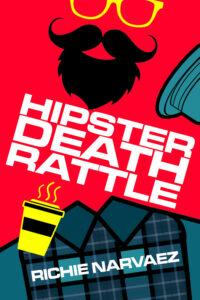Scroll Down to Read Part I
What kind of research do you do for your books? How does it vary between sub-genres?
I love research, so I probably spend far more time doing it than necessary. I work for a library, so I have the best research assistants in the world available to me. I like to read books so the internet is not my first choice when working on a new manuscript. There’s a lot of mis-information out there, so I have a great collection of historical research books and I access the resources where I work. I do use the Internet for a quick question while I’m writing, especially maps and locations. I also am addicted to Pinterest, and I use it for settings and clothing. I create notebooks for my research so when I’m writing the series books I can track things like character names, setting references and historical notes.
Since all of my books so far have been historical there hasn’t been much difference in the research. I have set three books in Montana, so that’s been a continuing link. More of the “Brides of Jubilee” will be set there. The “Mystic Moon” series about the witches are challenging because they are set it 1663. I had to do a lot of research to find out about ships for that particular time period. I finally found a ship that sank when it was brand new in Sweden and they have it in a museum there.
The most fun can be creating the steampunk elements. I work hard to create machines that either actually exist now or could have existed at the time with a bit more imagination. I don’t want machines that are totally imaginary since I’m setting my books in a real historical time period.
How does your job with the library, working with writers, storytellers, jugglers, and other “entertainers” impact your writing?
Many of my author friends are jealous of my job, because it’s not only a lot of fun, but I get paid to hang out with published authors, storytellers, musicians and creative folks. Not to mention that I have very smart friends, (librarians). I think all art is creative, and meeting and getting to talk to people who are following their hearts and being creative at their day job fuels the “engine” for wanting to be more creative. That influences my writing and my life. I’m so fortunate to have become friends with some amazing writers, and they have given me incredible feedback. My goal is to make every book I write better than the last one. Having writer friends who tell me the truth is valuable.
I love creating author events and writing workshops for the library system. There’s a direct connection between those who write books and the people who champion them. I think the library is a great place for writers.
I work in the Community (Public) Relations department of the library system, so I’ve learned about marketing and publicity. That is valuable when you are a published author. We’re responsible for a lot of marketing now, as the publicity departments at major publishers have shrunk. And, when you are an “Indie” author, it’s all on your shoulders to be the marketing department.
.
What are you working on now?
I’m finishing the edits on a contemporary romance, “Domestic Goddess” that I wrote several years ago. It’s about a television life-style diva who learns her fiancé wants to become a woman just before she launches a new show that is supposed to be all about their “wedding of the century”. I sent the book around, got some great comments about the writing but figured the subject was a bit too challenging for publishers to take on. But now—it seems timely. I have a publisher in mind, but if it doesn’t work out, I’ll Indie publish it.
Final Words of Wisdom
Learn your craft and write, write, write. When you finish a book you should celebrate, give yourself a huge pat on the back when you type “the end”, (many people who start a book never finish it), and then begin working on the next project. Many new writers spend a lot of time rewriting, polishing, sending it out and put all their energy into that first book. I didn’t sell my first book, but I learned a lot about writing by completing a manuscript. Then I learned more by joining a good writer’s group and organizing a critique group. I’m still writing with one member of that original group, after twenty-two years!
The most important thing: If you quit, I guarantee you will never get your book published.
Perseverance in this business is key. I’ve seen so many changes in the publishing industry, especially in the past few years. Indie publishing allows good books that might never have been published, because they don’t fit a preconceived notion of what readers want, to reach an audience. New sub-genres are being created and mixing genres is gaining popularity.
It’s a great time to be a writer, but it’s also a very competitive market for authors. You have to make every book your best, learn how to market yourself— and your books— and stay current with an industry that is constantly changing.
It’s a challenge and if you can stop writing because you are too discouraged, you probably should quit. But, if the desire to see your words, your world and your characters come to life in a book and share with readers burns too hard and fast within you, then keep writing.
Good luck!

